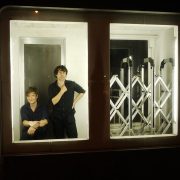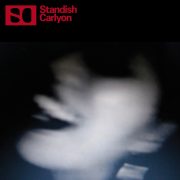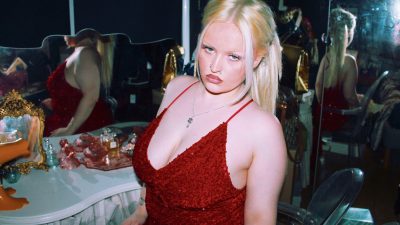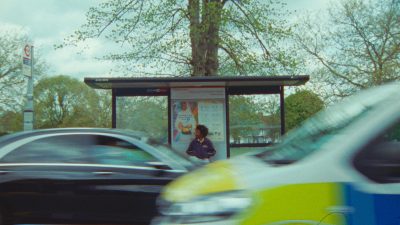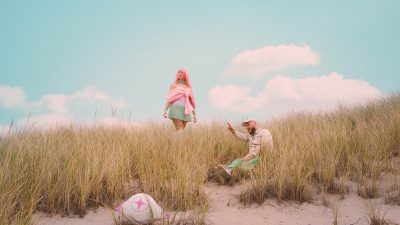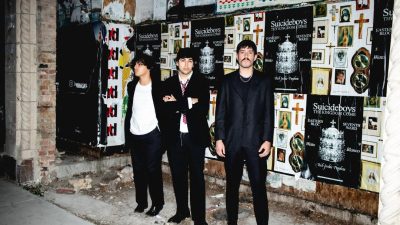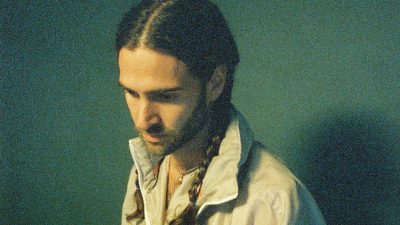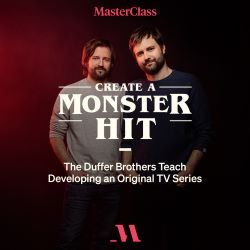Dark Pop Forces: The Belle Game Prepare for a Busy Summer
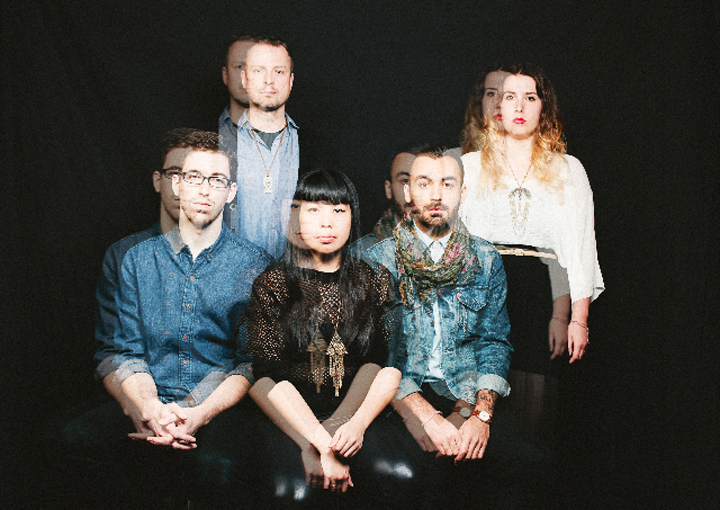
by Ed Collings-Wells
The Belle Game are a band that make it look easy. Although by no means strangers to Vancouver’s music scene they’ve achieved something of a fresh start. The band’s first record, Ritual Tradition Habit, was recently released on Canada’s Boompa label, and was met with wide applause. We’ve caught up with frontwoman Andrea Lo shortly after the home show for a coffee and a chat.
Ed Collings-Wells: So I caught you guys at the Rio last Friday night and really enjoyed it
Andrea Lo: Thanks, Saturday was awesome, I had a lot of fun. Friday was good too, it was kind of a different experience, it was more of an observant crowd, but what can you expect from a seated venue? I’d be guilty too, I’d totally just sit down and take it in!
ECW: Is there a perfect venue for The Belle Game?
AL: Jeez, well – I won’t lie – I love it when people are standing. Selfishly speaking, it’s easier to feel more engaged with the crowd. We would love to play Vancouver’s Vogue one day, that’s one of our goals. Right now we’re still growing so our ideal venues are the intimate ones. I really like the Starlite Room in Edmonton and Republik in Calgary. We certainly wouldn’t complain about playing a stadium one day!
ECW: Congratulations on the debut full-length album. What has the reception been like?
AL: I’d like to say it’s been going quite well, but then I don’t think that people would be too open about fully bashing it! So everything’s been fairly positive and we’re more than appreciative for that. It was really funny, the day we released the album somehow we ended up at number 17 on the iTunes pop charts, which was a really weird twilight zone moment. Anyway, that faded quickly, but it was cool while it lasted! It’s been nice to have the record as a tangible thing we can sell; the other night at the Rio was honestly the second time I’ve ever touched our album!
ECW: The band has existed with varying lineups for four years now. I get the impression you waited for the right time to release the album, did you?
AL: Yeah, although there have been many previous attempts to get one out. Our second EP was – and the rest of my band will probably beat me up about this – kind of an experimental mishap. There was a lot of long-distance writing and very little time together in the same city to put together a full album. So that was a good learning experience for us… and our bank accounts! Now with this album everything’s fallen into place. We were finally able to let songs sit and allow them to develop at a more natural pace.
ECW: So if the past EPs were sort of experiments is the album stronger because of them?
AL: I do feel that way. I mean, the EPs weren’t intended to be experimental, but they were definitely part of a learning process. I don’t think we could have made this album without making those.
ECW: Your lyrics are very direct with an obvious addressee. Would you say that this is a very personal album?
AL: Yeah, it’s very, very personal, just as any musician would say so unless they’re doing a jingle for Kraft Dinner or something. I think it’s personal but it wasn’t overly intentional at the same time. It all came together and, usually, when I’m writing lyrics and melodies I blab out words and sounds and eventually it starts to build. You know, the way I feel about this new album is that we found this reoccurring theme that came out naturally.
ECW: Is your writing process an individual thing, or a group effort?
AL: It’s definitely a group effort. It usually starts with Kat and Adam working on the bare bones tinklings of an idea. Then I’ll come down and join them in their basement and we’ll spend a lot of time over-analyzing things, arguing and lighting candles so we can maybe get inspired. From there I’ll usually contribute melody and lyrics and then, when we finally come to an agreeable point, we take it into the rehearsal space where Alex and Rob will join us and we’ll fucking tear the song apart and rip it to shreds.
ECW: Finally, where did the album title, Ritual Tradition Habit, come from?
AL: It came from the whole song writing process. We realized that a lot of the moods and lyrics of our songs were based around growing up and the themes of rituals, traditions, and habits in one’s life. Overall, it’s about coming to a point in your life when you’ve realized these things, when you’ve come to a point of awareness and you start to question whether these things are serving you, whether you can find different ways of coping with things, or if things are just going to stay the same.


